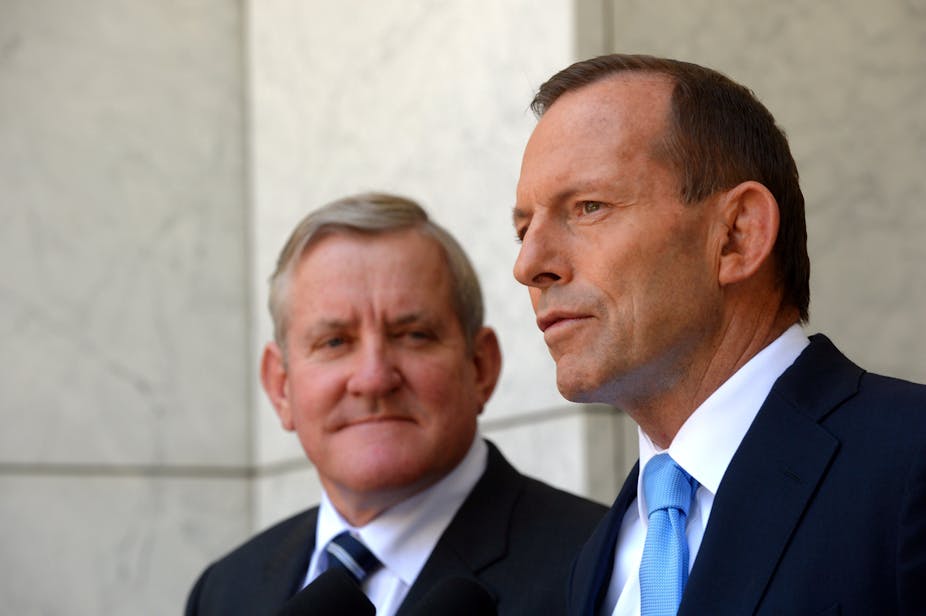Prime Minister Tony Abbott has sent a strong message to businesses not to expect handouts from his government, as he announced a $A100 million fund to cushion the impact from Holden’s decision to end manufacturing in Australia.
Abbott also said he would chair a ministerial task force comprising treasurer Joe Hockey, Industry Minister Ian Macfarlane and Trade Minister Andrew Robb “to develop a national industry investment and competitiveness agenda”. It will particularly look at how to make big cuts to the cost of energy.
The government’s response on the auto industry was condemned by the federal opposition, the South Australian government and the Australian Manufacturing Workers’ Union. Opposition leader Bill Shorten said that it had taken the Abbott government less than 100 days to wreck a national car industry.
A discontented SA Premier Jay Weatherill said: “We will be negotiating with the government until they give us a package that South Australia needs.”
In his tough line to business, Abbott said: “No country has ever subsidised its way to prosperity … This government will be very loathe to consider requests for subsidies.
"We will be very loathe to do for businesses in trouble the sorts of things that they ought to be doing for themselves and the sorts of things which the private sector commercial arrangements should potentially at least be doing for them. Our fundamental task is to get the basics right.” These included lower tax, less regulation and higher productivity.
The federal government will provide $60 million towards the fund, with $12 million from Victoria. It is seeking $20 million from Holden and the rest from South Australia.
The fund will “support economically responsible initiatives in regions facing pressure in their manufacturing sectors”. It will support business and research and development opportunities and complement other assistance available to Holden workers.
The help will include support for component manufacturers to adjust their business models; grants for businesses that establish or expand manufacturing operations in Victoria and South Australia, with preference for those employing former auto workers; and grants to help the commercialisation of R&D in the automotive components sector, leading to new products or processes.
Abbott stressed that the emphasis would not be on just handing out money.
The ministerial taskforce, which will make recommendations by the end of June, will examine reducing energy costs and encouraging innovation, such as through employee share schemes and commercialisation programs.
Power prices had gone “through the roof” and the task force would examine “what we need to do to get power prices … down significantly”.
“This country ought to be an affordable energy superpower,” he said.
He said manufacturing “is a vital part of a strong economic future for our country”.
It was important to give manufacturing for the future, not just the past, the best possible deal. But this should be done in a considered and comprehensive way, not just as kneejerk decisions in response to the crisis of the moment.
Abbott denied that the new fund was at odds with his stand against corporate subsidies. The effort would be on promoting industries of the future. If businesses were to receive money “they will have to make a very strong case”, including showing why the funds could not be obtained from the private sector.
Asked whether the present corporate welfare should be cut back, Abbott said “well, what we have, we have and other than as announced, we’re not making any changes”. But when pressed on whether this meant present corporate handouts were safe from cuts he said: “We will not act in ways which are inconsistent with our mandate but we’re not going to play this game of rule this in, rule that out.”
Asked if he would accept some trimming of his generous proposed paid parental leave scheme because of the budget problems, Abbott reiterated that he was committed to the scheme but “obviously it has to get through the parliament and that may well involve some negotiation”.

